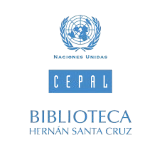Extrajudicial usucapio as a tool for dejudicialization of access to property right
Keywords:
Extrajudicial adverse possession, Judicialization, Property rightAbstract
It is not new that the Brazilian State is experiencing a legal instability regarding the land tenure regularization of a large part of its territory, mainly regarding the intricate process of differentiation of its own lands, said to be vacant, from the lands granted to private individuals through the allotment institute. Based on this problem, countless land tenure conflicts were settled in the countryside and in the city, despite the existence of legal institutes and legal provisions that try to guarantee the fundamental right of access to land, such as adverse possession. The State was placed as a protagonist in the land issue due to constitutional determination, but in the face of political, financial and social crises, organizational structure are insufficient to implement the constitutionally promised rights and guarantees land access. There are several instruments to assure property rights, but the questioning of the research is concentrated on extrajudicial adverse possession. The purpose of this article is to analyze the effectiveness of the extrajudicial usucapio institute as an instrument to de-judicialize the right to property. To carry out this research, the deductive general-to-specific approach method was applied, that is, it starts from the historical contextualization of lands in Brazil to the procedure of extrajudicial usucapio, and, concerning to technical procedures, the research was eminently bibliographic.
Downloads
Downloads
Published
How to Cite
Issue
Section
License
Copyright (c) 2021 Revista do Tribunal Regional Federal da 1ª Região

This work is licensed under a Creative Commons Attribution-NonCommercial-NoDerivatives 4.0 International License.
Ao submeterem artigos à Revista do Tribunal Regional Federal da Primeira Região, os autores declaram ser titulares dos direitos autorais, respondendo exclusivamente por quaisquer reclamações relacionadas a tais direitos, bem como autorizam a Revista, sem ônus, a publicar os referidos textos em qualquer meio, sem limitações quanto ao prazo, ao território, ou qualquer outra. A Revista fica também autorizada a adequar os textos a seus formatos de publicação e a modificá-los para garantir o respeito à norma culta da língua portuguesa.





















